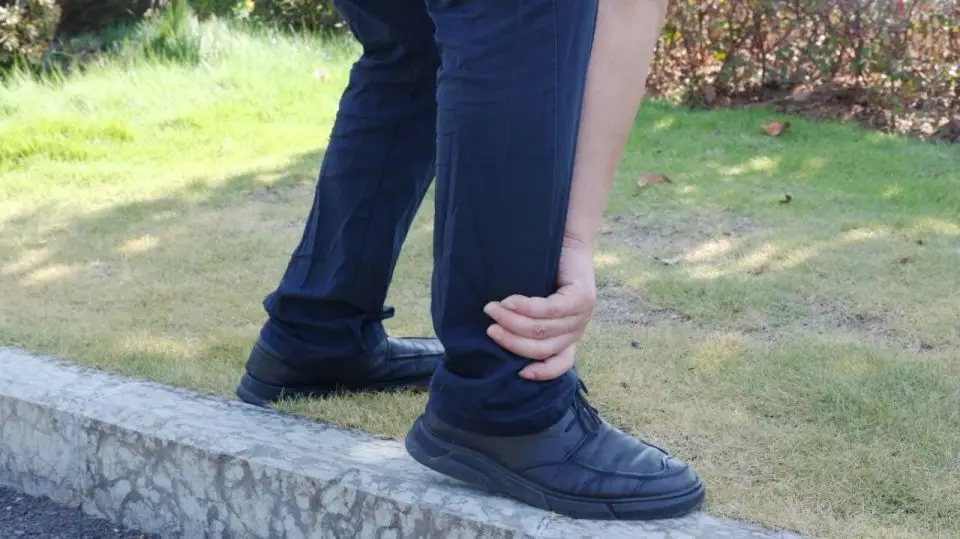Although cancer is terrifying, it doesn't develop overnight. In fact, many cancers exhibit a series of external symptoms early in their development. Identifying risk factors at this stage allows for targeted treatment.
Even walking can reveal cancer risk. Doctors admit, "If you have cancer, your walking will tell you." If you experience these five unusual symptoms while walking, beware of cancer's "stealth" presence. Early detection and treatment can significantly improve your symptoms.
1. Unsteady gait while walking
Sudden unsteady gait, prone to falling, or decreased balance while walking may indicate a brain tumor or nervous system cancer. When a brain tumor compresses nerves or affects cerebellar function, coordination may be impaired, resulting in a wobbly or unsteady gait.
Spinal cord tumors can also affect motor function in the lower limbs, leading to difficulty walking. If gait abnormalities are accompanied by symptoms such as headaches, blurred vision, or numbness, a brain imaging examination should be performed promptly.

2. Lower Limb Pain While Walking
Sudden onset of lower limb pain during daily walking, or persistent localized swelling, may be related to bone cancer or lymphoma.
Bone cancer often presents as persistent localized pain that worsens at night and may be accompanied by swelling or a mass in the painful area.
Lymphoma may cause enlarged lymph nodes, which can compress blood vessels or nerves, leading to lower limb swelling and pain.
Deep vein thrombosis (DVT) in the lower limbs can also cause swelling and pain, but if symptoms persist, be wary of the possibility of cancer.
3. Dyspnea While Walking
Unusual fatigue or difficulty breathing while walking may be a sign of lung cancer, leukemia, or heart-related cancers. Lung cancer patients often experience dyspnea due to tumor compression of the airways or pleural effusion.
Leukemia patients may experience increased fatigue due to anemia or decreased immune function. If fatigue or difficulty breathing is accompanied by symptoms such as coughing, chest pain, or weight loss, seek medical attention promptly for a thorough examination.

4. Discomfort in Multiple Locations While Walking
If you experience abdominal discomfort or lower back pain while walking, this may be related to digestive or urinary cancer.
Pancreatic cancer often presents as persistent pain in the upper abdomen that radiates to the lower back; kidney cancer may cause dull or dull pain in the lower back.
If the pain is accompanied by symptoms such as indigestion, loss of appetite, or hematuria, seek medical attention immediately.
5. Joint Stiffness and Restriction While Walking
Frequent joint stiffness or limited mobility may be a sign of bone or joint cancer or metastatic cancer.
Osteosarcoma often presents with localized joint pain, swelling, and limited mobility; metastatic cancers, such as breast cancer or prostate cancer with bone metastases, may also cause similar symptoms.
If joint stiffness is accompanied by weight loss, fatigue, or other systemic symptoms, seek prompt imaging and pathological diagnosis.

In summary, if you experience any of the above abnormalities while walking, along with other discomfort, you should seek medical attention promptly for a comprehensive physical examination and related tests.

%20--%3e%3c!DOCTYPE%20svg%20PUBLIC%20'-//W3C//DTD%20SVG%201.1//EN'%20'http://www.w3.org/Graphics/SVG/1.1/DTD/svg11.dtd'%3e%3csvg%20version='1.1'%20id='图层_1'%20xmlns='http://www.w3.org/2000/svg'%20xmlns:xlink='http://www.w3.org/1999/xlink'%20x='0px'%20y='0px'%20width='256px'%20height='256px'%20viewBox='0%200%20256%20256'%20enable-background='new%200%200%20256%20256'%20xml:space='preserve'%3e%3cpath%20fill='%23FFFFFF'%20d='M194.597,24.009h35.292l-77.094,88.082l90.697,119.881h-71.021l-55.607-72.668L53.229,232.01H17.92%20l82.469-94.227L13.349,24.009h72.813l50.286,66.45l58.148-66.469V24.009z%20M182.217,210.889h19.566L75.538,44.014H54.583%20L182.217,210.889z'/%3e%3c/svg%3e)




